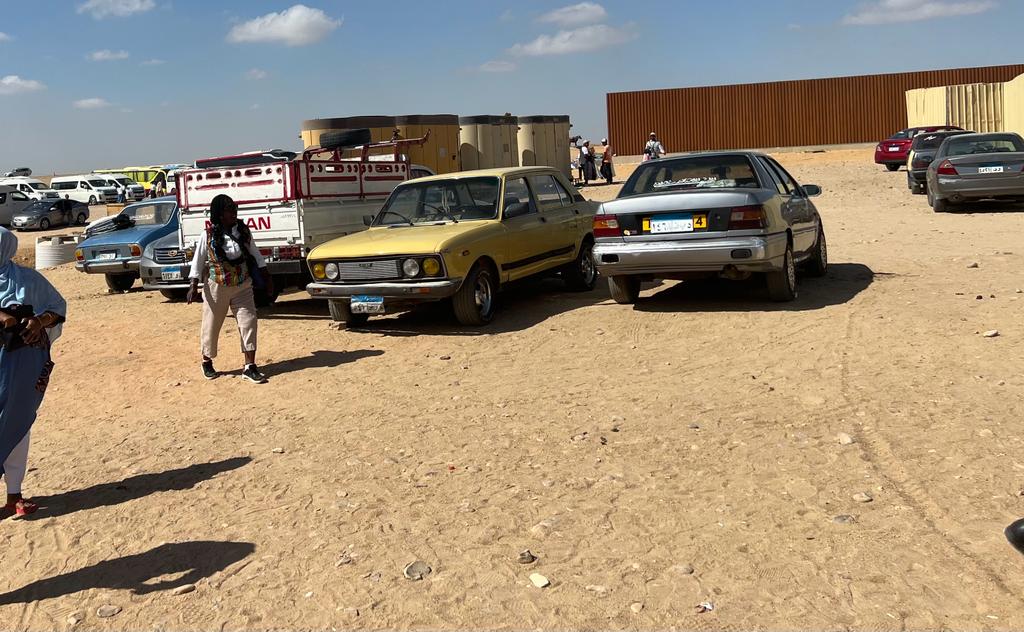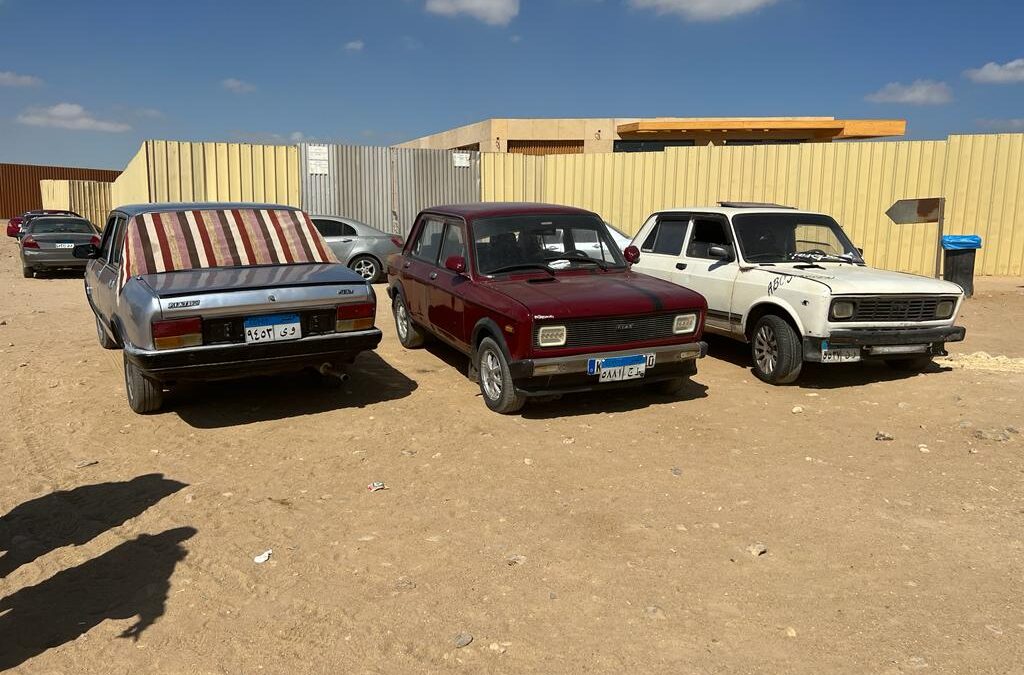The city of Cairo is a very interesting city with several perspectives to daily living. During my few days in the city as we drive around both the Old and New Cairo, there were a number of things that one could not help but notice. One of these had to do with the city’s transportation system.
The city boasts of very well surfaced road infrastructure connected with several interchanges, overpasses and underpasses. In fact, they are even in the process of construction a network for sky train. For some unknown reasons, we barely came across any roundabouts and traffic lights. Most of the time, interconnections had to be done using u-turns which were very far apart, thus making even shorter distances unnecessarily long. The city boasts of very well laid-out and well maintained roads of averagely five to eight lanes on either side. For some unexplainable reasons, my dear friend, they hardly come with road markings.
We noticed that unlike Ghana where very expensive vehicles including the presence of all manner of SUVs was common place, most of the vehicles plying the roads of Cairo were very average cars. In Cairo, SUVs are not that common as much as salon vehicles. Even then, any visitor will easily notice that majority of the vehicles on the roads were clearly over forty to fifty years old. These included Peugeot 504, 505 and 404 cars, Fiat Lada, VW Beetles, etc. Of course you’d once a while see a few Toyota and Hyundai saloon cars which appear to be under ten years of age. Clearly, irrespective of which car one saw, they were well maintained vehicles most likely due to the excellent road network they had. It was also evident that these were people who were very satisfied with their lives.
The other twist to the vehicles was that almost every vehicle on their roads had visible marks of dents, scratches, broken lights, fenders and other minor accidents. This was actually later appreciated because as you moved around the city, it was clear that the drivers did not follow the usual road traffic regulations at all, in much contrast to the way we from Ghana are usually very accustomed to. Even though switching of lanes was very common place, the absence of road markings on most of the roads made it very dangerous. The few roads that had these markings had also long faded. It was therefore common to see a six-lane road having eight cars driving abreast. Again my dear friend, if you ever thought our motor cycle riders in Accra were indisciplined, I have word for you – their counterparts in Cairo do not even wear helmets at all and they ride dangerously across lanes with speeding alacrity.
For whatever reason, the Cairo road infrastructure came without any footbridges and zebra crossings for use by pedestrians. Their roads do not also seem to have any traffic signals at all. Quite amazingly, most of the highways and urban roads have been shielded with long walls running on both sides of the roads. Whether as a direct cause or not, it made it almost impossible to witness any form of street hawking or street begging or other ills associated with our urbanized spaces.
One of the evenings, a couple of us on the Ghana delegation decided to while away the evening’s boredom by going to eat at the McDonalds Restaurant which was located some ten-minute walk from our Hilton Cairo Heliopolis.
As we strolled along the sidewalk, it occurred to us that we had to cross the road at three different points. With these ever speeding vehicles with no time to stop for pedestrians to cross and yet without any zebra crossings or footbridges to use, we had a challenge on our hand. At the first two points, the road had five lanes each and with some effort, we managed to cross them.

As we got close to the third crossing point dear friend, there was a score of police officers in a vehicle parked on the pedestrian walk. We exchanged courtesies and moved on. We got to the crossing located a minute away. We stood there awaiting for an opportunity to cross but strangely none of the drivers stopped or even attempted to slowed down. The drivers were busily tooting their horns and crisscrossing themselves with speed. During this period, a number of people came by and they all managed to cross the vehicles as briskly as the vehicles were fast pacing one another driving abreast with about six to eight vehicles. I was amazed how even a young teenager was able to cross effortlessly.
After some fifteen or so minutes of standing there visibly irritated, a young man who had apparently noticed our frustration came by to assist us cross. He was a Nigerian-Sudanese who was born and raised in the city but had spent holidays in Ghana a couple of times. He asked whether we were visitors and we responded that we had just arrived a couple of days from Ghana. He remarked, “If you guys are waiting for the cars to stop so you can cross, you’d be here till midnight ooo”. Immediately thereafter he crossed and stood before the first lane of vehicles and signaled us to follow him. As we crossed the first lane, he did same with the second and continued till the last lane. Even with this, we had to literally run while meandering through in order to avoid being hit by one car or the other. We were really worried particularly for one of us who was in his late sixties.
When we were done eating, we were still very worried about how we were going to cross the road back to our hotel. We thus decided to stay back and chitchat for about an hour to enable the traffic to reduce a little bit. After about an hour, we returned this time, taking a cue from what our ‘Good Samaritan friend’ had done earlier on.
As we walked back to the hotel my dear friend, we kept discussing how fortunate we were in Ghana with regards to the road infrastructure. For want of nothing at all, we have roundabouts and zebra crossings that help in the control of vehicular movement and thus allowing pedestrians an opportunity to also utilize the road infrastructure. In Ghana, we are also blessed with speed ramps, humps and tables that help regulate the movement of vehicles. We also appreciated the fact that we were blessed in Ghana to have various detachments of the Ghana Police that can be fallen upon to offer all kinds of assistance and thereby facilitate usage by various road users. Finally, we were faced with the virtual absence of hospitality, something that is palpably evident all across Ghana. It was obvious that the typical Egyptian was not interested in offering help to any one. Everyone was busily minding his or her own business.
My dear friend, we still have a myriad of challenges with our road infrastructure here in Ghana and we need to keep our government and State actors to work diligently at it. While doing so, I am of the opinion that we need to appreciate the little things we enjoy about our road transportation system. Let us certainly take very deliberate steps so that gradually we will all get there!

My dear friend,

